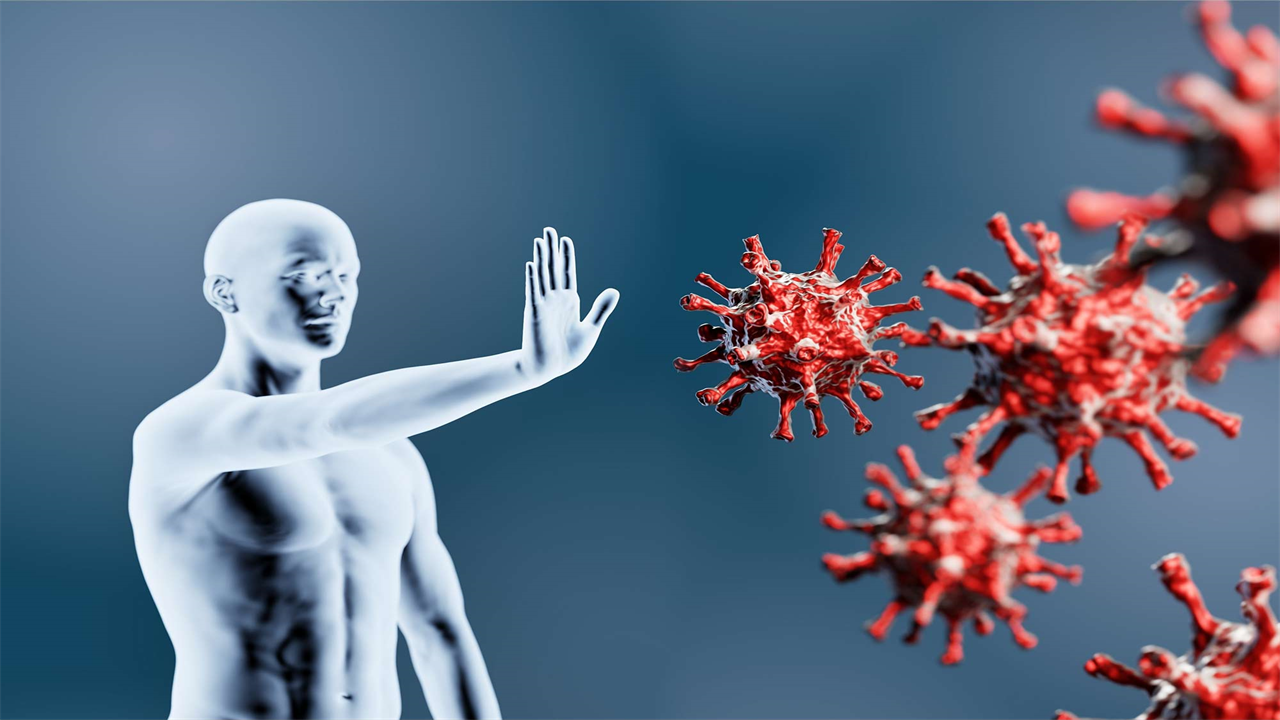One Coronavirus Vaccine Can Provide Broad Immunity Against Other Coronaviruses
0 View
Share this Video
- Publish Date:
- 16 October, 2021
- Category:
- Covid
- Video License
- Standard License
- Imported From:
- Youtube
Tags

Study is first to demonstrate cross-protective immunity through vaccines.
Northwestern Medicine scientists have shown for the first time that coronavirus vaccines and previous coronavirus infections can provide broad immunity against other, similar coronaviruses. The findings provide a rationale for universal coronavirus vaccines that could be helpful in the face of future epidemics.
“What was not clear until our study is that if you are exposed to one coronavirus, you could have cross-protection over other coronaviruses? And we’ve shown that to be the case,” said lead author Pablo Penaloza-MacMaster, assistant professor of microbiology-immunology at Northwestern University Feinberg School of Medicine.
The findings were recently published in the Journal of Clinical Investigation.
The three main families of coronaviruses that cause human disease are:
Sarbecovirus, including the SARS-CoV-1 strain responsible for the 2003 Severe Acute Respiratory Syndrome (SARS) outbreak, as well as SARS-CoV-2, which is responsible for COVID-19 Embecovirus, including OC43, which is often responsible for the common cold merbecovirus, the virus responsible for Middle East Respiratory Syndrome (MERS), which was first reported in 2012.
Vaccines showed cross-protective immunity
Plasma from people vaccinated against SARS-CoV-2 produced antibodies that were cross-reactive (potentially protecting) against SARS-CoV-1 and the common cold coronavirus (OC43), the study found. The study also found that mice immunized with a SARS-CoV-1 vaccine developed in 2004 generated immune responses that protected them from intranasal exposure by SARS-CoV-2. Finally, the study found that previous coronavirus infections can protect against later infections with other coronaviruses.
Mice immunized with COVID-19 vaccines and later exposed to the common cold coronavirus (HCoV-OC43, which is different from a SARS strain) were partially protected against the common cold, but the protection was much less robust, the study found. The reason, the scientists explain, is because both SARS-CoV-1 and SARS-CoV-2 are genetically similar — like cousins — while the common cold coronavirus is more different from SARS-CoV-2.
“As long as the coronavirus is more than 70% related, the mice were protected,” Penaloza-MacMaster said. “If they were exposed to a very different family of coronaviruses, the vaccines could offer less protection.”
Will there ever be one universal vaccine against the coronavirus?
Given how different each coronavirus family is, that answer is “probably no,” the study authors said. But there may be a way forward for developing a vaccine for each coronavirus family (Sarbecovirus, Embecovirus and Merbecovirus), they said.
“Our study helps us reevaluate the concept of a universal coronavirus vaccine,” Penaloza-MacMaster said. “It’s likely there isn’t one, but we could end up with a generic vaccine for each of the major families of coronaviruses, for example, a universal Sarbecovirus vaccine for SARS-CoV-1, SARS-CoV-2, and other SARS-related coronaviruses ; or a universal Embecovirus for HCoV-OC43 and HKU1 that cause the common cold.”
In the study, Penaloza-MacMaster collaborated with Northwestern Medicine physician Dr. Igor Koralnik, head of neuroinfectious diseases and global neurology at Feinberg, and Lavanya Visvabharathy, a postdoctoral research associate in neurological manifestations of COVID-19 at Feinberg, to evaluate immune system responses in people who have received SARS-CoV-2 vaccines, as well as in COVID-19 patients admitted to Northwestern Memorial Hospital.
“We found that these individuals developed antibody responses that neutralized a common cold coronavirus, HCoV-OC43,” said Penaloza-MacMaster. “We are now measuring how long this crotch protection lasts.”
Years of HIV research led the team to this discovery
Prior to the COVID-19 pandemic, Penaloza-MacMaster had studied HIV vaccines for a decade. His knowledge of how the HIV virus mutates led him to question cross-reactivity within coronavirus vaccines.
“One reason we don’t have an effective HIV vaccine is because it’s difficult to develop cross-reactive antibodies,” Penaloza-MacMaster said. “So we thought, ‘What if we tackle the problem of coronavirus variability (which is critical to the development of universal coronavirus vaccines) the same way we do the development of HIV vaccines?'”
Reference: “Cross-protective Immunity After Coronavirus Vaccination and Coronavirus Infection” By Tanushree Dangi, Nicole Palacio, Sarah Sanchez, Mincheol Park, Jake Class, Lavanya Visvabharathy, Thomas Ciucci, Igor J. Koralnik, Justin M. Richner, and Pablo Penaloza-MacMaster, October 8, 2021 , Journal of Clinical Investigation.
DOI: 10.1172/JCI151969
The study’s first co-authors are Tanushree Dangi and Nicole Palacio, both of the Penaloza-MacMaster lab.
The study was funded by the National Institutes of Health (grant DP2 DA051912-01).










